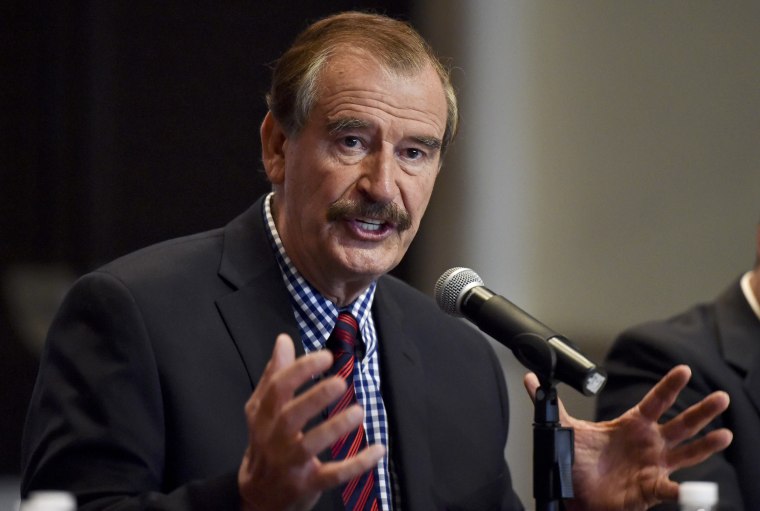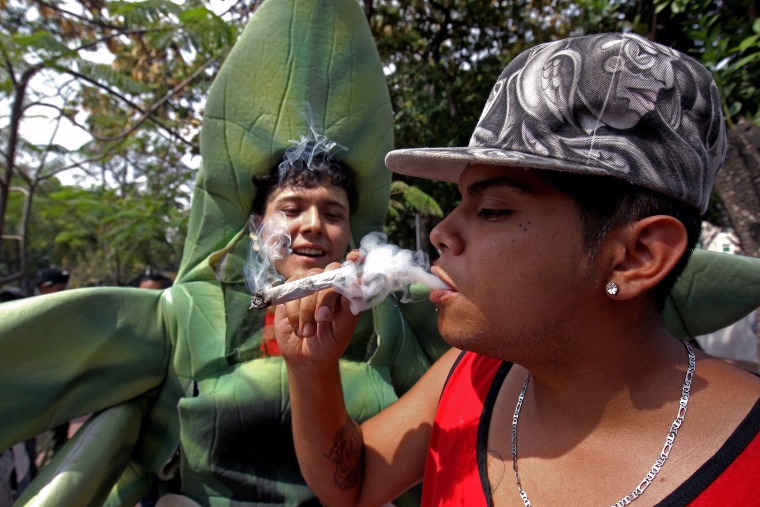Mexico is inching closer to becoming the world's largest legal cannabis market as lawmakers prepare to debate a proposal to legalize recreational marijuana.
The Chamber of Deputies, Congress' lower house similar to the U.S. House of Representatives, will take up the issue early next week, Martha Tagle Martínez, a member of the chamber's health committee, said in a series of tweets.
The Senate approved the legalization of medical marijuana almost four months ago, and two months later, the Health Ministry published rules to regulate the use of medicinal cannabis.
Former President Vicente Fox, who is on the board of global medical marijuana company Khiron Life Sciences Corp., said he sees the potential for Mexico to cash in on much-needed job creation, economic investment and medical advancements.
A regulated market could also help to lessen the cartel violence that has become synonymous with the country.
"Many great things will happen," he said. "We're taking away this beautiful plant from criminals and putting in the hands of retailers and farmers."

Mexico has been steadily marching toward creating a cannabis market since 2015, when a federal judge ruled in favor of importing cannabidiol, more commonly known as CBD, for medical reasons. The ruling stemmed from a case involving a young girl suffering from a severe form of epilepsy.
The parents of the girl, Grace Elizalde, who was 8 years old at the time, had tried just about everything to treat her Lennox-Gastaut syndrome, which triggered 400 seizures a day. At their most desperate, the family drove three hours to Laredo, Texas, to acquire Cosyntropin, a synthetic peptide that can be used to treat seizures. The medication cost more than $5,000, said Grace's father, Raul Elizalde, who is now the president of the international CBD company HempMeds.
Elizalde eventually reached out to a Mexican lawmaker who publicly supported adopting cannabis legislation in Mexico after Washington state and Colorado legalized recreational marijuana. That lawmaker, Fernando Belaunzarán, wrote a letter to Mexico's health secretary on behalf of the Elizalde family, seeking permission to import cannabis oil for Grace's treatment.
Initially, the Health Ministry declined the request, but a federal judge stepped in and allowed Elizalde to import CBD.
"There was not a lot of information back then in 2015," Elizalde said. "It was hard to find any information about cannabis, especially CBD."
Elizalde said Grace's doctor had been interested in research taking place around the world on CBD as a potential treatment for epilepsy and thought it was worth a try for his daughter, who is now 13. Her seizures have decreased to about 20 on a bad day, Elizalde said.
In 2017, Enrique Peña Nieto, the president at the time, signed a bill allowing the medical use of marijuana products containing less than 1 percent of THC, the psychoactive ingredient in cannabis. The bill also called on the Health Ministry to draft and implement regulations for the nascent industry.
It took three more years for Mexico to finalize regulations. During that time, public perception gradually shifted as more families spoke publicly about using cannabis-derived medication to treat various ailments.
"The domino effect is happening," Fox said. "The No. 1 challenge is to convey, inform and educate consumers and patients. And also educate the medical community. There is still some hesitancy in Mexican culture."
In a poll published last year in the newspaper El Financiero, 58 percent of respondents opposed full legalization. But among respondents under age 40, more than half said they were in favor of legalizing cannabis.
"Mexico is changing," Elizalde said. "We never thought we would change the law. Now it's changing faster than we thought possible."
While the road to full legalization appears to have accelerated, especially compared to the U.S.'s debate over the so-called war on drugs, Mexico's path has not necessarily been driven by public or political demand. Instead, Mexico's Supreme Court issued a series of five rulings declaring the ban on the consumption of cannabis unconstitutional.
Under Mexican law, the number of decisions needed to set a precedent is five.
"Mexico went down the legalization path because of a quirk in the way their judicial system works," said Andrew Rudman, director of the Mexico Institute at the Wilson Center, a nonpartisan research organization.
While the court's mandate forced lawmakers to build a framework for regulating cannabis, it did not necessarily create a desire among elected officials to do so quickly.
President Andrés Manuel López Obrador campaigned on the promise to change the country's approach to its drug war, including negotiating peace and amnesty for people involved in or affected by the illegal drug trade. Despite his campaign promises, legalizing cannabis is not necessarily a top priority, Rudman said.
"It was more that the court basically said to the Congress, 'You have to do this,'" he said.
With the clock ticking for Mexico to finalize both its medical and recreational cannabis programs, the U.S. could be left in an awkward position if its neighbors to the north and the south each have legal frameworks in place. Canada legalized recreational cannabis in 2018; marijuana remains a Schedule 1 drug in the U.S.
"It creates some really interesting trade issues," Rudman said. "Mexico legalizing is going to strengthen the push for, if not legalization, decriminalization in the U.S."
The Chamber of Deputies has until the end of April to comply with the court mandate to legalize cannabis.

